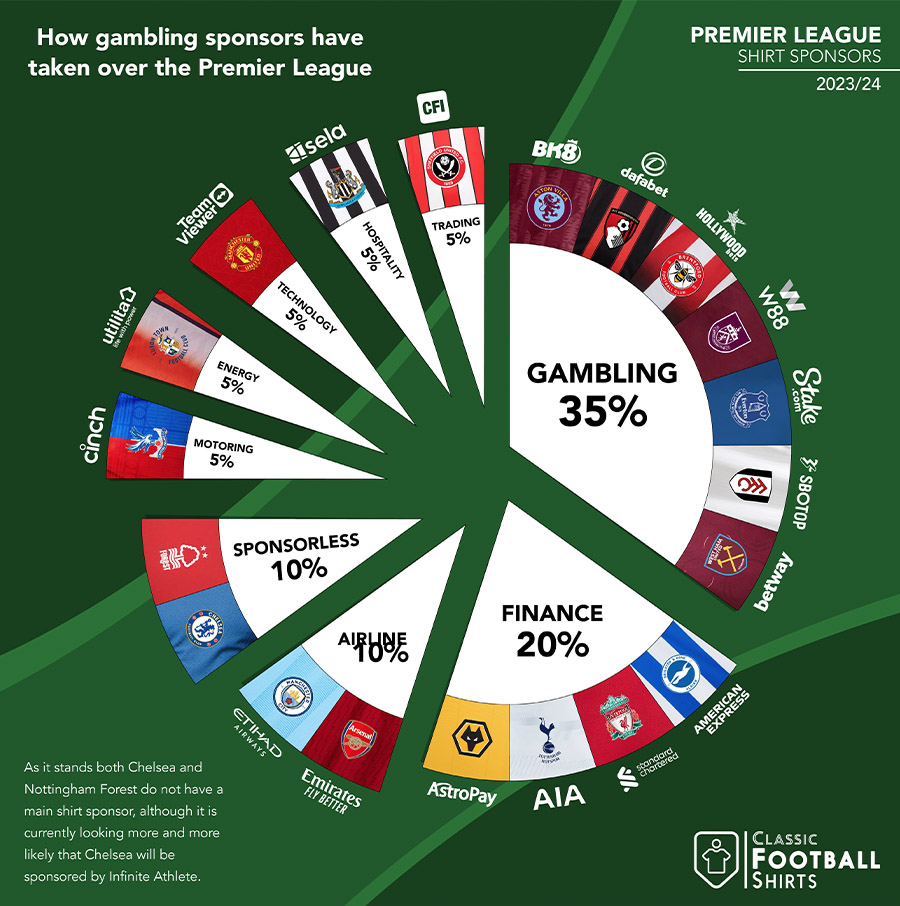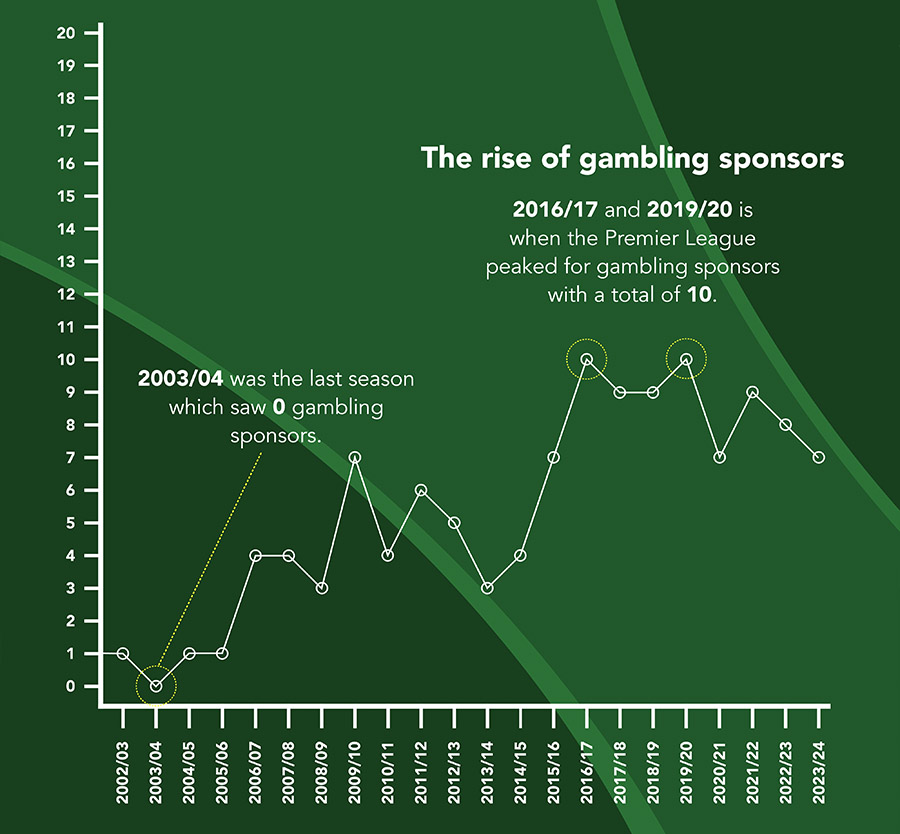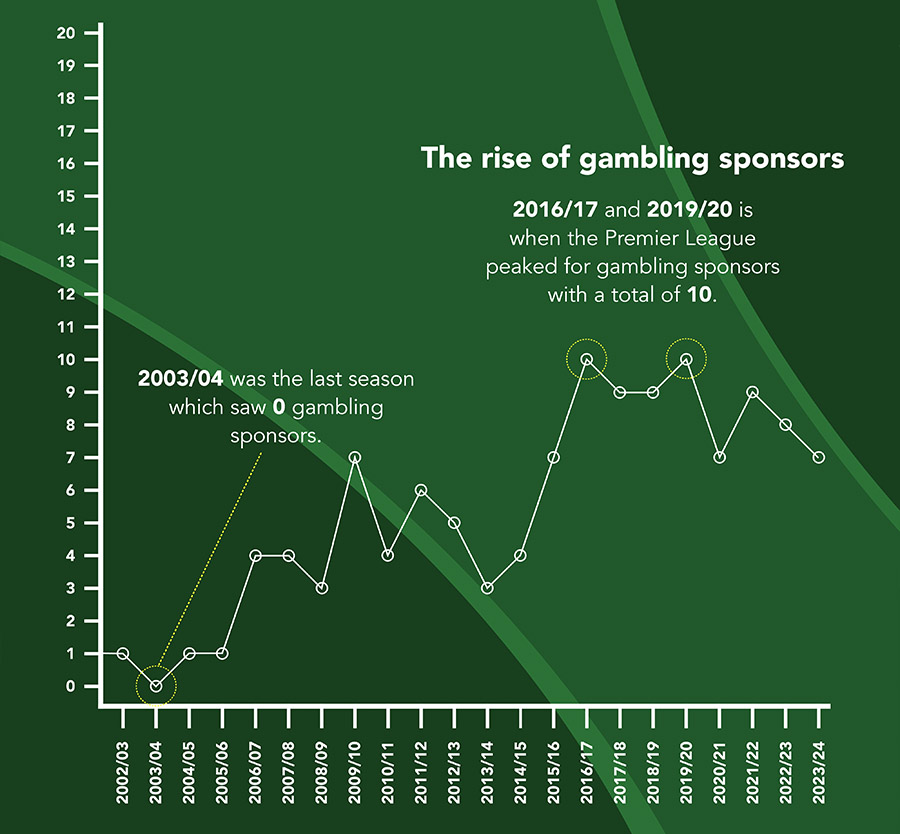From the inception of the Premier League, it took ten seasons before the first gambling sponsorship appeared on shirts – but 40% of front-of-shirt partners are now betting companies. Ahead of a ban on this form of sponsorship at the end of the 2025/25 season, the number is holding firm, suggesting that despite paying lip service to ‘concerns’ about gambling addictions in the UK, clubs intend to cash in on the morally dubious revenue source for as long as possible.
The UK gambling industry is one of the largest markets in the world, generating approximately £14.2 billion in 2020. This has meant that for many years, gambling sponsorships have been a huge source of income for many English Premier League clubs, with betting brands generally offering more lucrative deals than other sectors.
The market’s economic comes with a massive human cost, though. A YouGov study also carried out in 2020 estimated that almost 1.4 million people in the UK were problem gamblers. In addition, the study believed some 3.6 million people had been negatively impacted by someone else’s gambling problem, and a further 5 million people experiencing harm because of gambling addiction.

Even as gambling money continues to fill the coffers of Premier League football clubs, pressure has been mounting on them to distance themselves from an industry where it is an unspoken truth that success depends on exploiting addiction. Sometimes those addictions have even been those of players forced to play with gambling firms printed on the front of their jerseys.
Brentford striker Ivan Toney is currently sitting through an eight-month football ban, after being found guilty of 232 breaches of FA betting rules. His suspension might have been longer, but for a diagnosis that he has a gambling addiction, and Toney has played much of his career for clubs whose shirts are emblazoned with material that has encouraged him to place bets.
Having left the market to regulate itself for some time, ahead of the 2023/24 Premier League season, the organisation subsequently announced action against gambling sponsorship. The league agreed with its clubs to ban gambling companies from being on ‘the front of match day shirts’ – stating the rule would come into play from the end of the 2025/26 season, to “assist clubs with their transition away” from gambling front-of-shirt sponsors.

That ‘transition’ remains a matter of intense discussion, however. At the start of the season, a study from soccer retailer Classic Football Shirts – the sponsor of Burnley FC last season, which has been replaced by a betting firm this year – found that 35% of clubs had chosen to place gambling front and centre of their shirts. With the announcement from Nottingham Forest that the club had turned to a betting company to end its two-year search for a sponsor, that figure rose to 40%. That is the same as in the previous season.
That figure also excludes the clubs who have welcomed new sponsorship from online casinos without putting it on their shirts. Newcastle United, for example, which recently added one ‘official betting partner’ to its club website, while extending its relationship with a betting firm that had previously been on its shirt as its ‘official Asian betting partner’.
These moves come just days after another footballer has been accused of breaking FA betting rules. Lucas Pacqueta is now set to be investigated, after reports from a gambling firm flagged up his behaviour to authorities. The firm also happens to be West Ham’s sponsor – the longest standing front-of-shirt gambling firm in the Premier League, which has paid for the gig since midway through the 2014-15 season.
